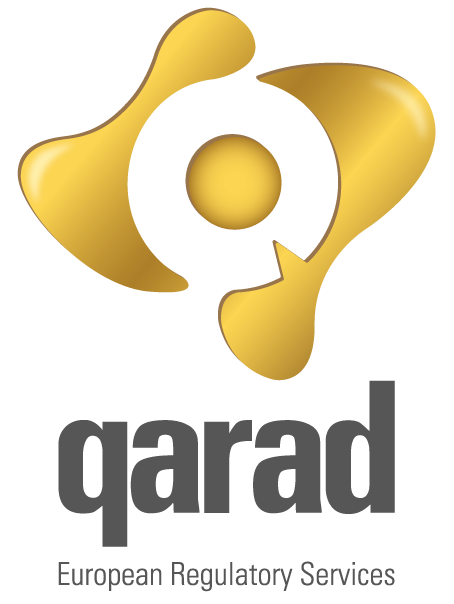On January 10th, 2023, the Medical Device Coordination Group (MDCG) released a new guidance on the health institution exemption under Article 5(5) of Regulation (EU) 2017/745 and Regulation (EU) 2017/746. This guidance is very important for healthcare professionals and researchers of health institutions aiming to design, manufacture, modify and use in-house devices (MDCG 2023-01).
Finally, this highly anticipated MDCG Guidance on in-house developed device exemption is out and with that the first MDCG of 2023!
Medical devices can be manufactured and used within EU health institutions (in-house devices), on a non-industrial scale, to address the specific needs of target patient groups which cannot be met, or cannot be met at the appropriate level of performance, by an equivalent CE-marked device available on the market. In-house medical devices are exempted from most of the provisions of Regulations (EU) 2017/745 (medical devices Regulation, MDR) and (EU) 2017/746 (in vitro diagnostic medical devices Regulation, IVDR), provided the health institution adheres to the conditions laid out in Article 5(5) of the relevant Regulation. In order to ensure the highest level of health protection, Article 5(5) sets a number of rules regarding the manufacture and use of such in-house medical devices. The provisions in Article 5(5) are the basis for the regulatory control and oversight of inhouse devices. This document provides guidance on the application of some of these rules. It is written for healthcare professionals and researchers of health institutions aiming to design, manufacture, modify and use in-house devices. In addition, this guidance document intends to foster harmonised application of Article 5(5) by the national competent authorities. Both Regulations also state that any natural or legal person offering diagnostic or therapeutic services through distance sales to patients in the Union must use devices that comply with the MDR or IVDR (Article 6(2)). Of importance here is that the exemption provision from Article 5(5) is only applicable to health institutions within the Union. While most recommendations in this document pertain to both medical devices and in vitro diagnostic medical devices (IVDs), some are specific to IVDs; such cases are explicitly mentioned.
Finally, this MDCG confirms what Is commonly understood as a health institution:
“An organisation the primary purpose of which is the care or treatment of patients or the promotion of public health (definitions 29 and 36 of the IVDR and MDR, respectively). According to recitals 29 and 30 of the IVDR and MDR, health institutions include hospitals as well as institutions, such as laboratories and public health institutes that support the health care system and/or address patient needs, but which do not treat or care for patients directly. The concept of health institution does not cover establishments primarily claiming to pursue health interests or healthy lifestyles, such as gyms, spas, wellness and fitness centres. The recognition as a health institution can also depend on national legislation and could thus differ between Member States.”
This means that laboratories, regardless whether they are publicly or privately owned if they are used to support the health care system and/ or address patient needs without treating or taking care of those patients directly are considered health institutions under IVDR and MDR.
Clarifications of terms used in Article 5(5) of MDR and IVDR:
This guidance provides clarification on all below terms. Most items were expected, but there is a point of attention (!).
- Devices
- Manufactured and used
- Compliance with the relevant general safety and performance requirements
- Legal entity
- What is an appropriate QMS under MDR and IVDR
- (!) Here it is confirmed that compliance with EN ISO 15189 alone does not constitute an appropriate QMS for the manufacture of in-house IVDs since the manufacturing process of a device is not in scope of this standard. This seems to imply that for those labs compliance to EN ISO 13485 which is the one used by IVD manufacturers may also be required.
- Justification that the target patient’s group specific needs cannot be met, or cannot be met at the appropriate level of performance, by an equivalent device available on the market
- The level of information that can be requested from health institutions by competent authorities
- Public declaration
- Documentation requirements
- Vigilance, incidents and corrective actions
- Industrial scale
Timing
Regulation (EU) 2022/112 deferred the application of some, but not all, provisions for inhouse IVDs. A schematic overview of the timing of the applicability of IVDR Article 5(5) provisions can be found in Annex B of this guidance. Note that the corresponding Article 5(5) of the MDR has already been fully applicable since 26 May 2021.
On January 12th, 2023, the Medical Device Coordination Group (MDCG) also released a list of standard fees for the conformity assessment activities that Notified Bodies carry out and shall make those lists publicly available according to Article 50 of Regulation (EU) 2017/745 on Medical Devices (MDR) and Article 46 of Regulation (EU) 2017/746 on in vitro diagnostic medical devices (IVDR) (MDCG 2023-02).
MDCG 2023-02 – List of standard fees
This MDCG provides templates for “List of Standard Fees” and are intended to assist notified bodies defining their list of fees for publication in accordance with MDR Article 50 and IVDR Article 46. Notified bodies can decide the way how they charge for their services and should have documented procedures relating to fees charged for conformity assessment activities
What does this mean to you?
MDCG 2023-01 is of relevance for all healthcare professionals and health institutions as this is another thread for the availability of in-house developed tests for the European market.
MDCG 2023-02 is important for notified bodies to help them defining their list of fees for publication.
Should you want to discuss this more in depth with one of our consultants, please do not hesitate to get in touch with us.

